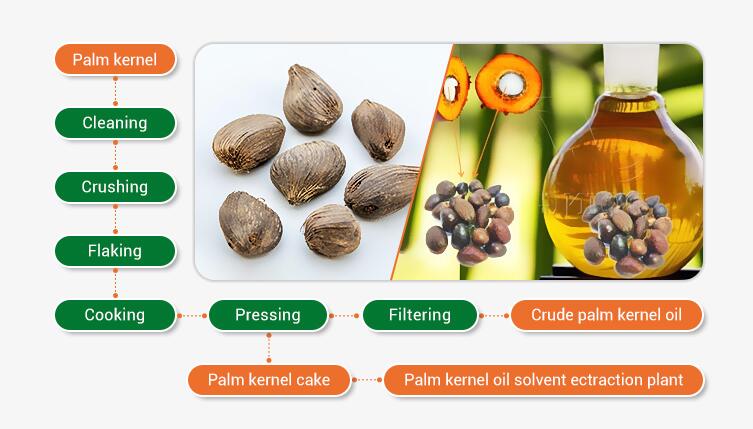China leading palm oil mill plant machine manufacturer and supplier
Email:info01@cnoilmachine.com
Building a palm kernel oil mill in the Philippines offers significant market potential and development opportunities. The following is an analysis:
Raw Material Supply: The Philippines has a significant amount of oil palm plantations, primarily in Palawan, Menthol, and Mindanao. Although its palm oil production is relatively small compared to Indonesia and Malaysia, it still has a substantial raw material base, and local companies are actively expanding their plantations. Furthermore, importing palm kernels from neighboring countries is convenient. The Philippines, located in Southeast Asia, is relatively close to major palm oil producers Indonesia and Malaysia, resulting in relatively low logistics costs.
Market Demand: Palm oil is the most consumed oil in the Philippines and is widely used in the food service industry, particularly fast food restaurants. It is also widely used in food processing, cosmetics, and medical products. With the Philippines' economic development and population growth, demand for palm kernel oil and its products is expected to continue to increase. Furthermore, the Philippines is a net importer of refined palm oil, leaving a significant domestic demand gap for palm oil-related products, creating a market opportunity for new palm kernel oil mills.

The Philippine government may provide policy support to promote the development of the palm oil industry. For example, businesses in special economic zones may enjoy preferential policies such as a 4-8 year tax holiday and zero tariffs on imported equipment, which can reduce production costs and investment risks.
Labor Resources: The Philippines boasts a large labor force with relatively low labor costs, which helps reduce labor costs for palm kernel oil mills and enhance their competitiveness.
Cultivation Scale and Raw Material Stability: Compared with major palm oil producers like Indonesia and Malaysia, the scale of oil palm cultivation in the Philippines is relatively small, which may affect the stability of raw material supply. Furthermore, the four to five years it takes for oil palm to be planted and harvested make it difficult to significantly increase raw material production in the short term.
Infrastructure in some areas, such as transportation and electricity, may be inadequate. This can affect the transportation of raw materials and the normal operation of mills, increasing operating costs.
Establishing a factory in the Philippines requires compliance with complex local laws and regulations, including environmental requirements. For example, various permits and licenses, such as those issued by the Environmental Management Bureau, must be applied for, which is a complex process. Failure to be familiar with local regulations can lead to project delays or penalties. If you want to build a palm kernel oil mill in the Philippines, you need to conduct sufficient market research and feasibility studies, rationally plan the scale and location of the mill, and actively cooperate with local governments and businesses to fully utilize local resources and policy advantages while responding to potential challenges.
If you are interested in our palm oil machine and palm oil mill plant. You can contact us through online consultation, filling out the form below, email, phone, etc. Our engineers will customize the most suitable plan and best price for you.